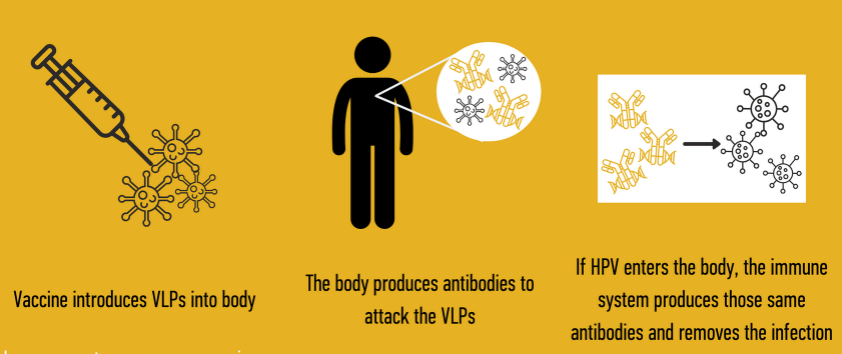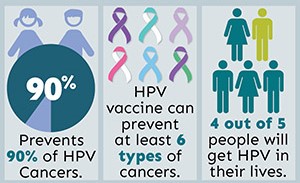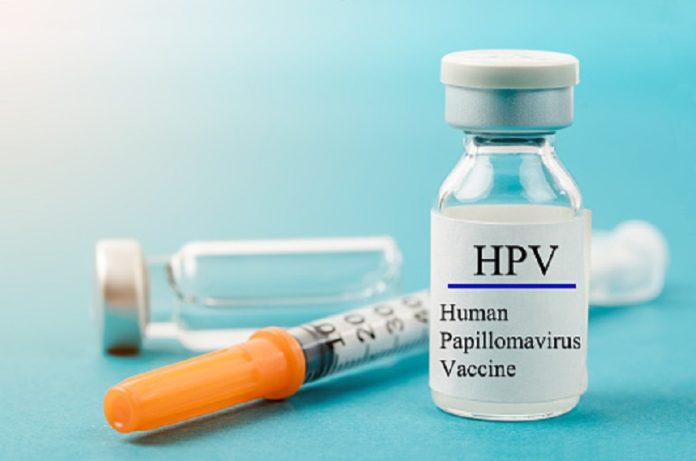Nigeria has introduced the human papillomavirus (HPV) vaccine into its routine immunisation system, aimed at reaching 7.7 million girls – the largest number in a single round of HPV vaccination in the African region – in a vaccination drive against the virus that causes nearly all cases of cervical cancer.
In a statement by UNICEF, girls aged nine–14 years will receive a single dose of the vaccine, which is highly efficacious in preventing infection with HPV types 16 and 18 that are known to cause at least 70 [per cent of cervical cancers.
In Nigeria, cervical cancer is the third most common cancer and the second most frequent cause of cancer deaths among women aged between 15 and 44 years. In 2020 – the latest year for which data is available – the country recorded 12,000 new cases and 8,000 deaths from cervical cancer.
Let’s ensure that this generation of our girls disrupt the preventable loss of lives to cervical cancer -Health Minister Pate
According to Muhammad Ali Pate, the Coordinating Minister of Health and Social Welfare the loss of about 8000 Nigerian women yearly from a disease that is preventable is completely unacceptable.

And cervical cancer is mostly caused by Human papillomavirus (HPV), and parents can avoid physical and financial pain by protecting their children with a single dose of the vaccine. Therefore, saving lives and producing quality health outcomes and protecting the well-being of Nigerians.
Pate said the onset of the vaccination campaign is an opportunity to safeguard girls from the scourge of cervical cancers many years into the future adding that, “As a parent myself, I have four daughters, all of them have had the same HPV vaccine to protect them against cervical cancer. I’d like to implore fellow parents to dutifully ensure that this generation of our girls disrupt the preventable loss of lives to cervical cancer in addition to other untold hardship, loss, and pain.”
A five-day mass vaccination campaign in schools and communities will be carried out during the inaugural rollout in 16 states and the Federal Capital Territory. The vaccine will then be incorporated in routine immunisation schedules within health facilities. The second phase of the vaccination introduction is set to start in May 2024 in 21 states.

The vaccine is being provided for free by the Federal Ministry of Health through the National Primary Health Care Development Agency with support from Gavi, the Vaccine Alliance, the United Nations Children’s Fund (UNICEF), the World Health Organisation (WHO) and other partners.
With support from the WHO country office in Nigeria and other partners, over 35,000 health workers have so far been trained in preparation for the campaign and subsequent vaccine delivery in all health facilities. Vaccination sites have been established in all 4163 wards across the 16 states included in the phase one rollout to ensure no eligible girl is left behind. Mobile vaccination units have also been set up to ensure that remote communities can access the vaccine.
“This is a pivotal moment in Nigeria’s efforts to lower the burden of cervical cancer – one of the few cancers which can potentially be eliminated through vaccination,” said Dr Walter Kazadi Mulombo, WHO Representative in Nigeria. “We’re committed to supporting the government to increase access to the HPV vaccine to protect the health and well-being of the next generation of women.”
This vaccine doesn’t just prevent a disease, it promises a life where our young women can thrive, unburdened by the spectre of cervical cancer
WHO recommends that HPV vaccination is included in the national immunisation programmes of countries where cervical cancer is a public health priority, where its cost-effective and sustainable implementation is feasible. As such, Nigeria has prioritized the addition of the vaccine to the country’s routine immunization schedule.

Global supply shortages have slowed Gavi-supported vaccine introductions. These supply issues are now easing thanks to years of market-shaping efforts to develop a more robust HPV vaccine market and the single dose recommendation.
Recognizing this critical opportunity to reach more girls with higher levels of global HPV vaccine supply and renewed momentum towards accelerating efforts to prevent cervical cancer, the Gavi board approved the revitalization of its HPV vaccine programme with an investment of over US$ 600 million by the end of 2025.
With the additional funding, Gavi and its partners have set an ambitious goal to reach over 86 million girls by 2025, aiming to avert over 1.4 million future deaths from cervical cancer.
“Every day, cervical cancer inflicts profound loss and devastation on families across Nigeria. It also disproportionately impacts the lives of women. And yet, it is a disease that can be prevented. With the HPV vaccine now available in Nigeria for eligible adolescent girls at no cost, communities now have the most effective tool to fight cervical cancer and the nation has an opportunity, collectively to save millions of lives,” said Thabani Maphosa, Managing Director of Country Programmes Delivery at Gavi.
Over 16 million girls could be protected in Nigeria alone by 2025.To support these efforts in Nigeria and in line with its goal to build sustainable immunisation programmes, Gavi is co-financing the cost of the vaccines and providing technical support for the introduction.
UNICEF has procured nearly 15 million HPV vaccines on behalf of the Government of Nigeria. Alongside this, the children’s agency has produced informational materials, including radio and TV jingles in multiple local languages to dispel misinformation and rumours.
“In our shared quest for a brighter future, the introduction of the HPV vaccine in Nigeria represents a monumental stride towards safeguarding our girls from the grips of cervical cancer.
“This vaccine doesn’t just prevent a disease, it promises a life where our young women can thrive, unburdened by the spectre of this grave health concern. UNICEF, in collaboration with the government and other partners, is proud to be a key partner in this initiative, ensuring that every eligible girl, irrespective of her location or circumstances, has access to this life-saving intervention. Together, we are scripting a narrative of hope, resilience, and a healthier Nigeria,” says Cristian Munduate, UNICEF Representative in Nigeria.


